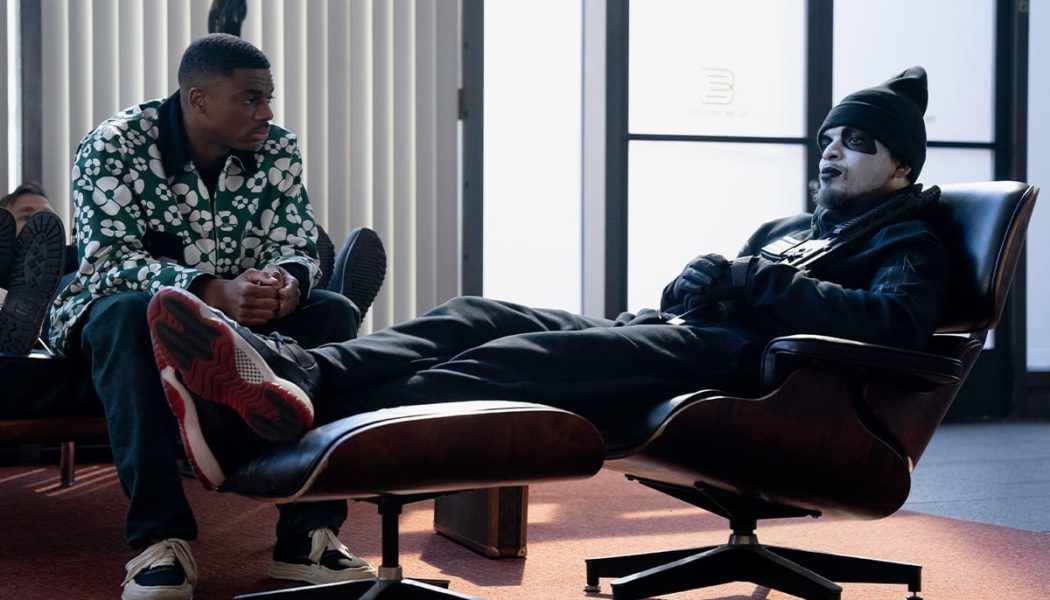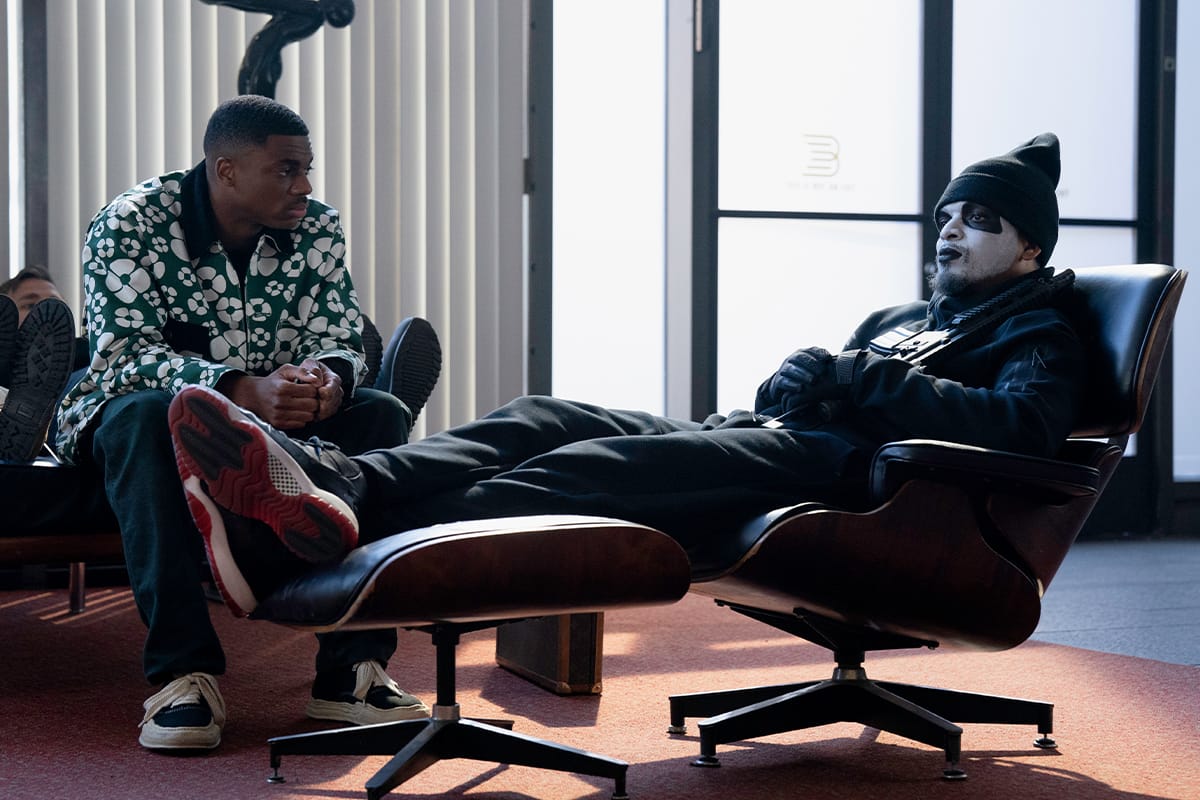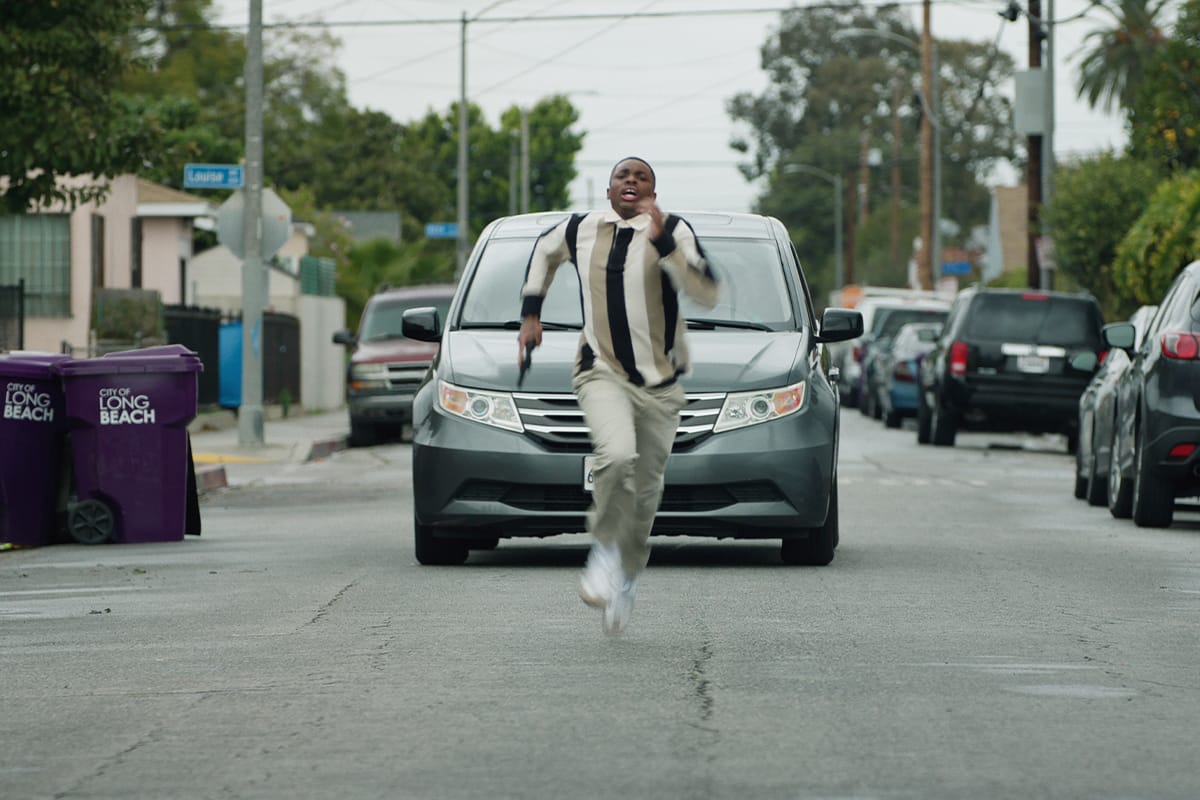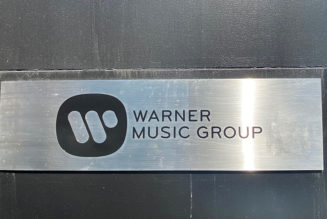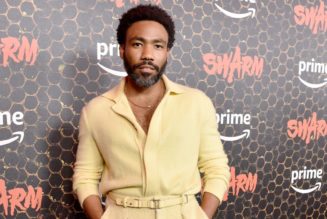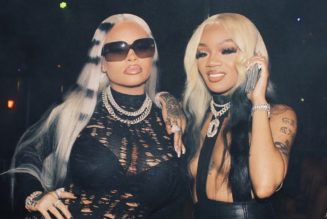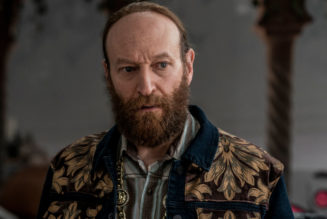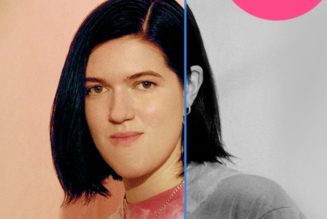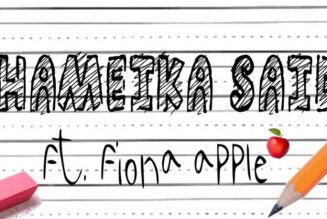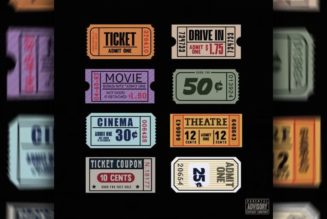Vince Staples has never been the type of person to complain. He’s fine with sitting down on the couch and telling everyone that everything is okay, even when it’s really not. So when he receives any kind of opportunity to create, he’ll gladly do so — and he’ll do it with all the gratitude he can muster. (Spoiler alert for those who have yet to finish the series.)
Fame and celebrity are two things that the 30-year-old never wanted or needed. He’s always been open about the fact that he never chased them; they came with the success of his musical endeavors, which he then developed into various business deals and a foray into acting. He cut his teeth with guest cameos on Dope and Insecure, supporting roles on Abbott Elementary and the 2023 reboot of White Men Can’t Jump and voiceover work on American Dad! and Lazor Wulf. He also released a few episodes of a self-titled YouTube series in 2019, which now serves as a cornerstone of his very own Netflix series, The Vince Staples Show. Even though the show was initially announced in September 2022, the conception of his self-titled work in cinematography actually dates all the way back to 2016. A few meetings were held but nothing really came to fruition, so he took that time to hone his acting chops and develop a visual style through his music. “As soon as I started music, people pointed towards my visual elements, my movies and videos, artwork, live shows and things of that nature. They kind of leaned into the visual medium of what I was creating,” he says. “So it made me want to see how far I could push it.”
Right before the COVID-19 pandemic, he connected with TV veteran (and White Men Can’t Jump writer) Kenya Barris who voiced his interest in helping. They then brought the idea to Netflix and started planning out a pilot, but like the rest of the world, it came to a screeching halt. Staples considers himself lucky, however, as they were able to pick up right where they left off, and The Vince Staples Show became one of the titles that made it out of the pandemic-induced production limbo.
“I try to find ways to internally search for the answers that I’m looking for, and utilize the art as a medium. It’s the purpose behind all the things I try to create as I’m finding those things out about myself.”
Like the title implies, the five-episode series is “loosely based” on the North Long Beach native’s own stories and the “normality” of his life in the neighborhood. He was heavily involved in the entirety of the show’s writing process and joined the likes of Crystal Jenkins, Amy Hubbs, Maurice Williams and Ian Edelman in the writing room, where they and the rest of the writing team would share certain experiences that were important to them. “We would try to find a viewpoint of harmony, and usually my experiences in, or perspective on the small scenarios would be kind of crazy,” he continues, eventually creating storylines that stemmed from their own introspection of their lives. “Everybody was there for the vision that I wanted to execute,” Staples acknowledges.
Early on in the process, he was told by Calmatic (a collaborator on the show and the director of his self-titled YouTube series) that the Netflix production “is not going to be done the way you want it to be done or done at all if you don’t write it yourself,” so he downloaded the final draft, sat on the phone with Williams and got straight to learning the ropes of scriptwriting. His ability to flesh out ideas as quickly as he could write music allowed them to get things done quickly, and the writers’ room helped him either rein his ideas in or expound on it. This resulted in The Vince Staple Show’s fine balance between eerie comedy and drama, and although fans probably expect a full-blown comedy from the man who’s dubbed one of the funniest and most intellectual men in rap, Staples himself didn’t really care much for genre. “We have so many elements of life that are humorous and there are so many different definitions of humor,” he says. “I just wanted to tell stories. The show has humor and sadness, drama, romance and everything. You just have to look for it.”
As a series that sees the lead actor as a fictionalized version of themselves, there may be a misconception that The Vince Staples Show follows a flow similar to Jerry Seinfeld and Larry David’s Seinfeld and Curb Your Enthusiasm. The Vince Staples Show isn’t a “show about nothing,” however, as it heavily relies on one key aspect: perspective. The events that take place over the course of one episode could make one hell of a day for others, but for TV Vince Staples, it’s just a day in the life. This can can equate to him being at an affluent bank which his childhood friends just so happen to rob that same day, or getting chased by a childhood classmate who’s held a decades-long grudge against him. These may or may not have happened to real-life Vince Staples, but either way, it’s a reflection of his ability to walk the thin line of celebrity while maintaining a connection with his upbringing. “There are so many things to pull from in our day-to-day lives, especially with the story that I was trying to tell with the show. They’re never-ending, so to say,” he shares. “A lot of the time, we only know what’s inside of our bubble. This might be a normal day for [TV Vince Staples], but these circumstances speak on how we all live extremely different lives based on our perspective.” He adds, “I also think the contentment for life is there. It’s like no matter what happened throughout that day, we have another day. It’s the same thought process of ‘Okay, maybe tomorrow, things will be better.’”
It’s almost like a form of gratitude — something that Staples has long been an advocate of. Although he has yet to reach the point of practicing gratitude with a journal (“I live in a weird, small bubble. I’m just learning what Letterboxd is.”), he can’t help but take gratitude through every element of his life when he looks at his past. He’s not necessarily thankful for the celebrity, he’s thankful for the opportunity to create things from his own thoughts, make a living out of it and affect other people’s lives. To have this chance means to look at life from a positive perspective. Anything that comes after is just a perk that he appreciates.
Staples is intentional in all his creations, regardless of the medium. Picking apart his real life experiences and translating them — irrespective of whether it’s for an album or a TV show — gives him the opportunity to find a deeper sense of self. “I try to find ways to internally search for the answers that I’m looking for, and utilize the art as a medium. It’s the purpose behind all the things I try to create as I’m finding those things out about myself. That’s pretty much the reason I do it,” he explains.
Hypebeast: Diving deeper into the details of the show, you had an action sequence and it reminded me of your “So What?” episode on YouTube. Was adding an action sequence something that you really wanted to include in the show?
Vince Staples: Oh yeah. I have an affinity for certain things, but it was definitely important because it’s funny how quick life can turn. I wanted to make sure that I was able to explore every element of that. The fear, passion, hatred, everything.
What was the best part about learning and shooting the action sequence?
How tired I was gonna get, and how sometimes you should probably use the stuntman [laughs]. Production elements are always interesting because you get these wrenches thrown inside of what you’re trying to do over and over and over again, and they’re based on things like weather or time or finances. Having to be malleable was super duper interesting, especially when it came to the actual stuff, because we still got something, even though it might not have been what we initially wanted it to be. It still embodies all of those things so it makes you think, “Okay, what’s necessary? What does it need to be? What doesn’t it need to be?”
“The human experience is one that’s not singular. We all have to be here with each other.”
Rick Ross joins you in the second episode as someone who gives TV Vince Staples important financial advice. Of all the rappers that you could have asked, what was it about Rozay’s presence that was vital for the show?
There was gonna be a new journey in that episode, right? Like Vince is trying to enter a new realm of financial literacy or business in general but he has a door shut in his face, which is a very, very disheartening thing. Then here comes [Ross] to give him advice and be someone he can confide in and be open and honest with. I think that they have extreme similarities within how they’re viewed in those bank rooms, but within youth or hip-hop culture, the people that know who they both are may not ever see them being similar at all.
Ross is an artist that’s extremely successful, but in my opinion, he’s not known as much as he should be for his business acumen. Adding someone there to give Vince solid business advice, but not being the person that they expect it to be is an overall commentary on how we view ourselves within the ecosystem that we’re trying to infiltrate.
In the same episode, you’re brewing coffee while your childhood friends are robbing the bank that you’re trying to get a business loan from. A while back you asked your followers on X if anybody had a direct source to Ethiopian beans. Are you still a regular coffee drinker now or have you found an alternative?
I still have a coffee problem, but I’m working on it. I might do a tea once a month, but you gotta balance out the coffee with the water intake and, you know, pray for the best.
Do you have a current favorite like in terms of a brew or bean?
[laughs] I can tell you right now that if I walk to my kitchen, I probably have 10 bags of coffee that I’ll alternate and rummage through. The problem is, I can taste the difference — that’s when you know you’re off the deep end.
What has the art of coffee-making taught you?
Patience…and I guess gluttony, because of these different kinds of coffee.
But I think repetition is important in life, and we all have weird moments of repetition. I think coffee-making slowly became mine. But yeah, it’s also probably the greed in my life because I can be like, “I don’t want this today. Let me go down and get something else, or let me go buy one.” I wake up relatively early so I can end up having a cup of coffee at five in the morning, another one at six and another one at eight. It don’t matter if it’s a studio day or a day on set.
Moving on to the third episode, it was definitely written with a more wholesome tone with the involvement of a family reunion. How has the role of community shaped your work, both in music and in visual media?
I think it’s extremely important. The human experience is one that’s not singular. We all have to be here with each other. Even loneliness is kind of speaking to the community, because it’s something that you feel based on lack of community. A lot of the time, you can also create challenges and a lot of them go unspoken, because of survivor’s guilt or feeling like you’re being a burden to certain people. But I think those are things that we all feel no matter how much money or success we have.
It was something I wanted to explore, especially based on perception, because we all have our ups and downs. We all have these nuanced relationships with the people around us, and we just want them to see us in a positive light. It was trying to find nuance within that conversation and having a dialogue while still trying to keep some glimpse of positivity towards the end of the episode, even though things are going crazy. That gives us some thought that one day, we can figure it out together.
You also give a little shout out to Abbott Elementary. Do you think your character Maurice will ever come back to the show? And if he did, how would you want him to return?
It really depends. I think that they do such a great job of writing over there that if I was ever to come back, it would probably be an extremely easy transition. You know, there’s always going to be mail that needs to be delivered.
I had a great time on that set. I learned a lot about how to create, how to be on set, how to be a producer, an actor, a writer — all of that just from the experiences I’ve had there. So I would love to come back and if not, learn more. Anyone can learn from having a small role in such an important piece of work.
There was one word that was thrown around a lot in The Vince Staples Show, so of course I wanted to ask, what does “allegedly” mean to Vince Staples?
I think it speaks to a level of denial, the level of blindness that we all have towards the world around us. That’s a big thing in the show. You can talk about surrealism and all, but there are a lot of things in the show that are possibly happening or possibly not happening. There’s a lot of tie-ins to mental health, perception or the supernatural in general. They’re not over the top, so you wouldn’t notice them until you watch the show several times and really listen. That’s a play on the reality that we try to shield ourselves.
Is a second season in the cards?
We’ve gotten some good conversations out there. It really just depends on the support of the show. It’s very much a possibility, so please, everyone reading and supporting, give it a chance. It’s not that long of a show. Watch it and leave a little thumbs up at the end of the Netflix thing, because that matters a lot over there, and hopefully we can get a second season.
So does that mean you’re completely down for a second season?
Yeah, why not? I think the format of the show reminds us that we can do anything, because as long as there are more days, there are gonna be more episodes of The Vince Staples Show.
All five episodes of The Vince Staples Show is now available to stream on Netflix.
